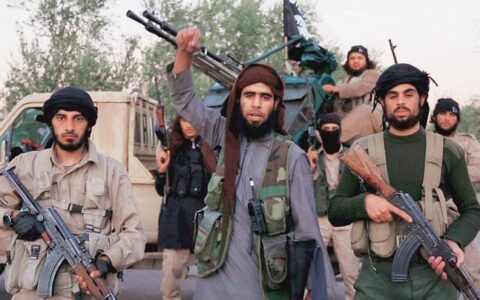
Islamic State hits back aided by power vacuum in Iraq and Syria
Yousif Ibrahim no longer travels by night along the roads around his hometown of Jalawla in northeastern Iraq. He fears getting caught up in attacks by Islamic State.
“The police and army don’t come into our area much anymore. If they do, they get shot at by militants,” said the 25-year-old, who sells fish for a living in a nearby market.
Nearly three years after the group lost its final enclave, Islamic State fighters are re-emerging as a deadly threat, aided by the lack of central control in many areas, according to a dozen security officials, local leaders and residents in northern Iraq.
Islamic State is far from the formidable force it once was, but militant cells often operating independently have survived across a swathe of northern Iraq and northeastern Syria, and in recent months they have launched increasingly brazen attacks.
“Daesh (Islamic State) isn’t as powerful as it was in 2014,” said Jabar Yawar, a senior official in the Peshmerga forces of Iraq’s northern autonomous Kurdistan region.
“Its resources are limited and there’s no strong joint leadership,” he told Reuters in the city of Sulaimaniya. “But as long as political disputes aren’t solved, Daesh will come back.”
Some fear that could be starting to happen.
In late January, Islamic State carried out one of its deadliest attacks against the Iraqi army for years, killing 11 soldiers in a town near Jalawla, according to security sources.
The same day, its militants stormed a prison in Syria under the control of U.S.-backed Kurdish militia in an attempt to free inmates loyal to the group.
It was the biggest attack by Islamic State since the collapse of its self-declared caliphate in 2019. At least 200 prison inmates and militants were killed, as well as 40 Kurdish troops, 77 prison guards and four civilians.
Officials and residents in northern Iraq and eastern Syria lay much of the blame on rivalries between armed groups. When Iraqi, Syrian, Iranian and U.S.-led forces declared Islamic State beaten, they faced off against each other across the territory it had ruled.
Now Iran-backed militias attack U.S. forces. Turkish forces bomb Kurdish separatist militants. A territorial dispute rumbles on between Baghdad and Iraq’s autonomous Kurdish region.
The tensions are undermining security and good governance, causing confusion that Islamic State once thrived on.
For Ibrahim, that means crossing checkpoints manned variously by Iraqi soldiers and Shi’ite Muslim paramilitaries to get to work in a town controlled until a few years ago by Kurds.
The remote farmland between each military outpost is where Islamic State militants hide out, according to local officials.
A similar pattern plays out across the 400-mile corridor of mountains and desert through northern Iraq and into Syria where Islamic State once dominated.
Towns like Jalawla bear the scars of fierce fighting five or so years ago – buildings reduced to rubble and scarred with bullet holes. Banners honouring slain commanders from different armed groups jostle for space in town squares.
Source: Yahoo News





